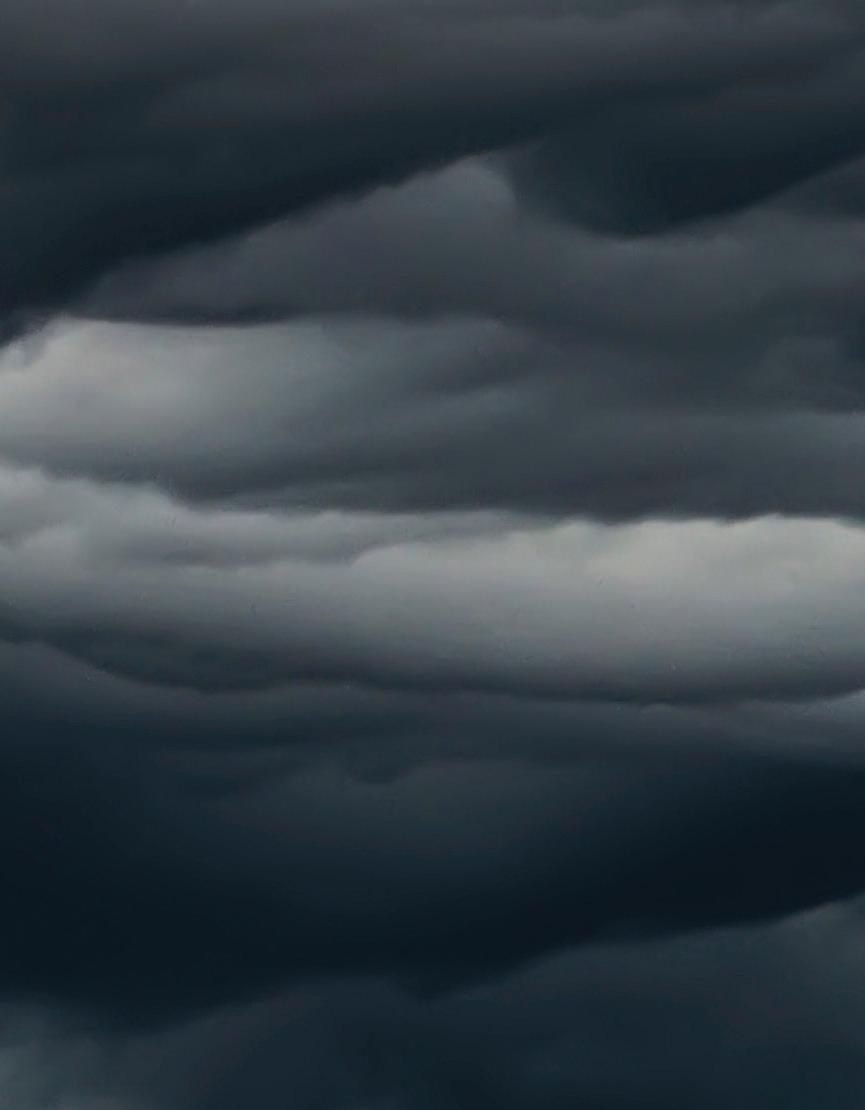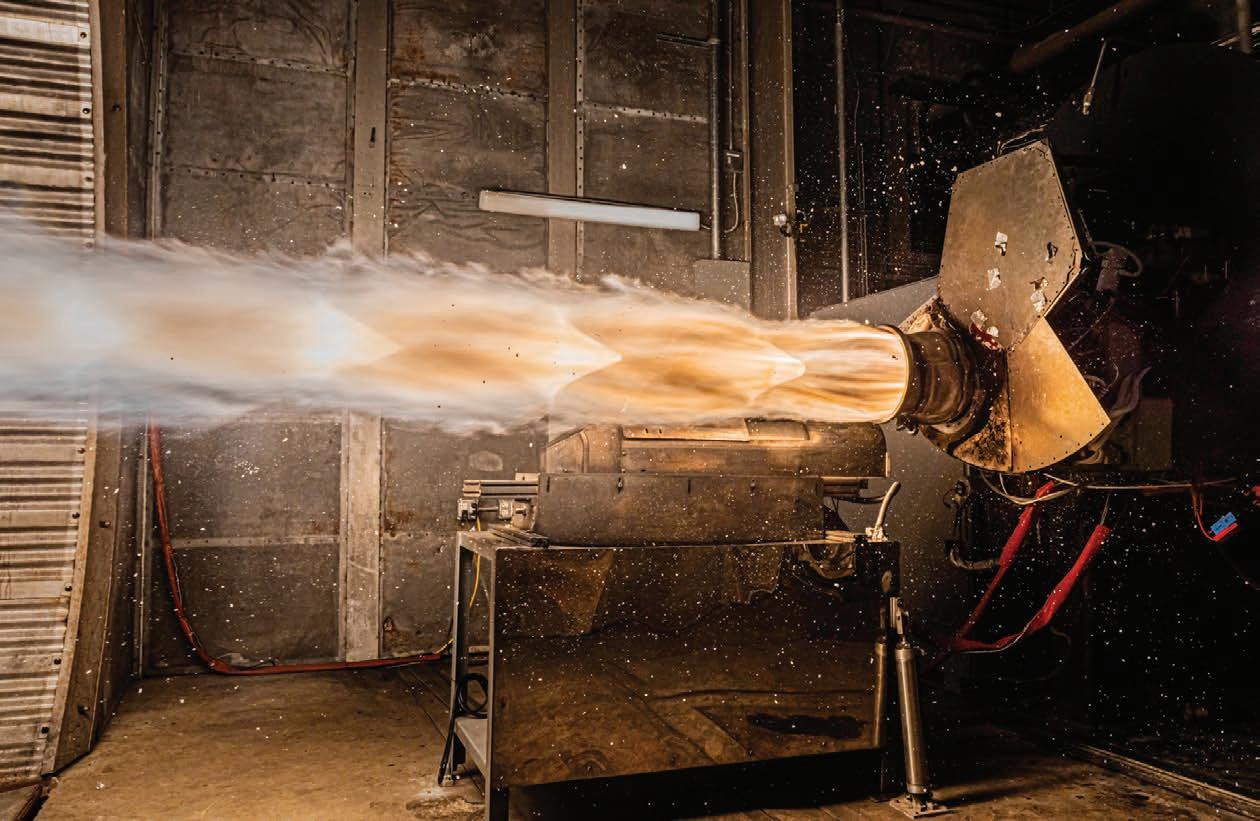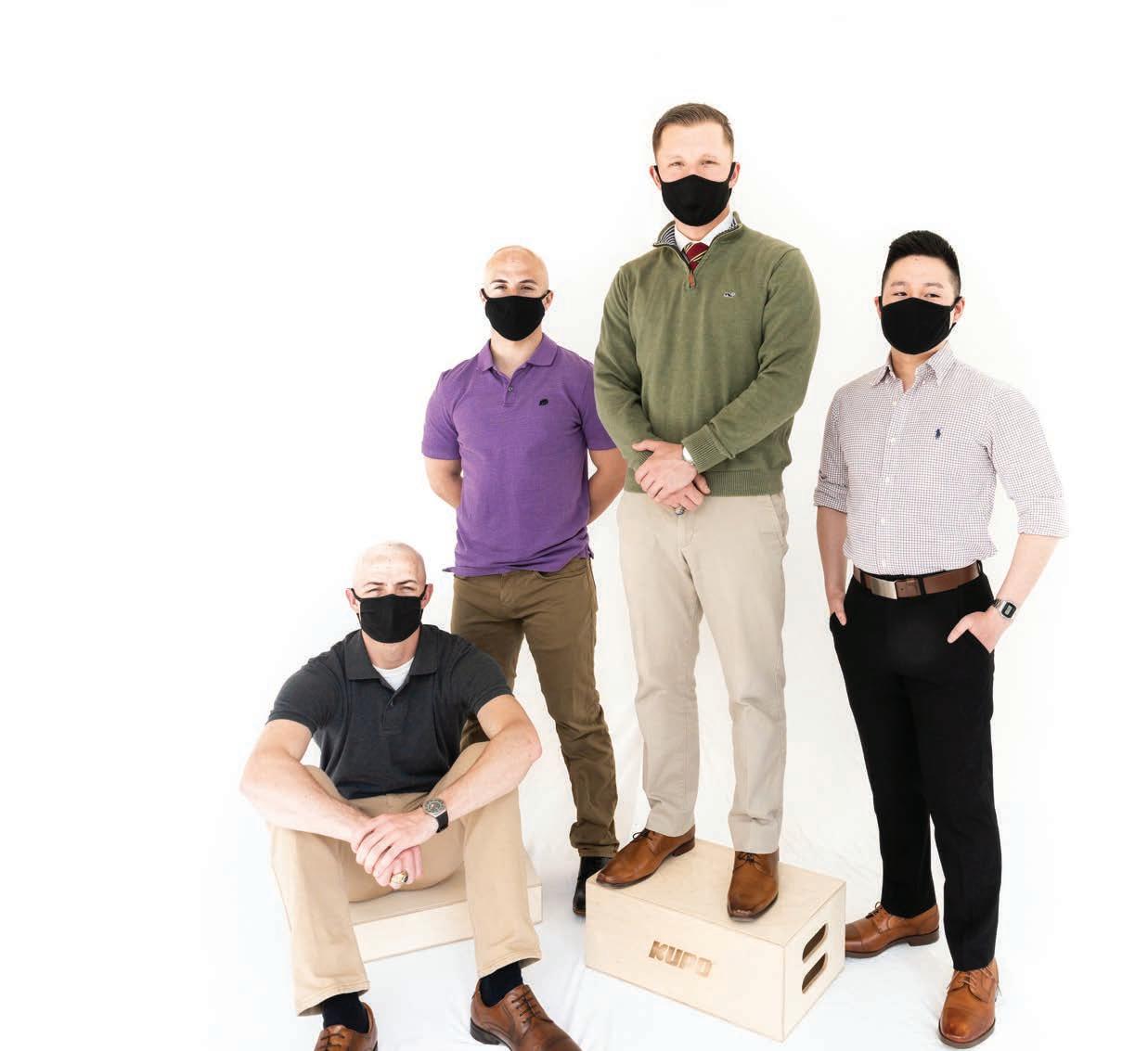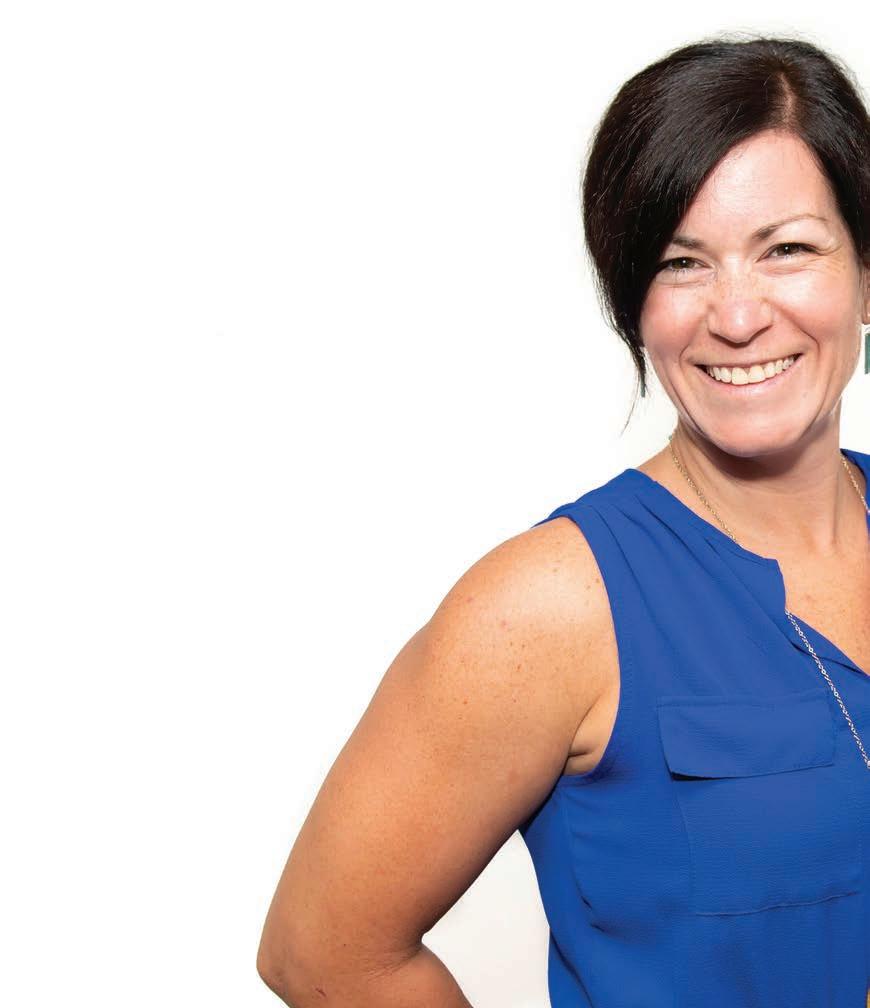
15 minute read
TOP COP
Port of San Diego Harbor Police Chief and Fulbright scholar Mark Stainbrook ’91 on the LAPD’s Rampart scandal, the value of community policing, and how serving the people you lead builds successful organizations
INTERVIEW BY SEAN MARKEY | PHOTOGRAPHS BY ROB HAMMER ’04
Advertisement
BAYWATCH Mark Stainbrook '91 and his Harbor Police officers patrol waters near the San Diego-Coronado Bridge.

Mark Stainbrook ’91 got his start in law enforcement as an undergrad at Norwich busing tables when some Vermont State Police officers, on campus one day to recruit auxiliary officers, stopped by to ask directions. Stainbrook learned about the opening, applied, and spent the summer patrolling boat traffic on Lake Champlain. In the three decades since, Stainbrook went on to forge a distinguished career in the U.S. Marine Corps and Marine Corps Reserve and, later, as a police officer with the Los Angeles Police Department, working in gang units, counterterrorism, and internal affairs. Today, he serves as chief of police for the Port of San Diego, a diverse jurisdiction that spans five cities, 34 miles of waterfront along San Diego Bay, a port, an international airport, and a border with Mexico. Stainbrook also consults with the U.S. Department of State, providing police training to forces across Africa and Asia. He recently spoke with the Record about his unusual career path as a police officer and his formula for great leadership.
Tell us about your Fulbright fellowship. That’s not something many police officers seek out. How did that come about? I love the military, but I wanted to go do different things. After leaving active duty in the Marines, I joined the LAPD. But I stayed in the Marine Corps Reserves and became a civil affairs officer. I was in the 3rd Civil Affairs G out of Camp Pendleton on 9/11. My dad was in the Pentagon when it got hit. He was just in the interior to the right of where the plane went in. I didn’t know if he was alive or dead all day. Meanwhile, LAPD was calling me, “Hey, you’re coming in tonight to guard the airport, so bring your unit over here.” I found out later that my dad was alive. He got out with smoke inhalation.
After 9/11, I asked myself a fundamental question: Who are these Muslim people who attacked us? That was my broad, ignorant question at the time. When I got called up two months later, I was sent to Kosovo, where I led a civil affairs team. If you know anything about Kosovo, it’s about 90 percent Albanian Muslim and 10 percent Serbian. I was in a mixed 60/40 Serbian–Muslim area. I spent six months there on the ground. The Muslim people there loved us, because we had saved them from the Serbs during the ’90s. They were naming their kids Bill Clinton and things like that. I was a little confused. “Wait a second, Muslim communities attacked us here in the U.S., but these Muslims in Europe love us.” So I started studying Islam and Muslim communities.
When I got back to the States, I was told, “Don’t unpack. You’re going to go to Iraq.” I spent about five or six months at home and then was deployed to Iraq. We went in with the invasion, went to Baghdad. I was working with cops there and Muslim Sunni and Shia groups. I was learning about those differences. When I came back to LAPD, I started my master’s degree. I decided to write my thesis on a comparison of Muslim communities before and after 9/11 and their relationship with the police. I did quite a bit of community outreach. The main thing that came out of my thesis was when cops interacted with Muslim communities about 80 percent of the time it was a positive interaction. That told me we need to have more interaction.
About two weeks after the 7/7 bombings in London in 2005, Rick Wall, who was a captain at LAPD, called me. He knew about my master’s program and my thesis. He asked me, “Have you ever thought about putting in for a Fulbright fellowship?” I didn’t know what that was. He told me. I applied, and I got it. I wanted to study where the 7/7 bombers came from, which was in West Yorkshire, a place called Bradford. I ended up finding this guy, Al McFayden, who was a theology professor at Leeds University, but he was also a reserve constable in the West Yorkshire Police Force.
I went and lived with him and his family for a while. I got my own place and brought my family over. I was seconded by LAPD. So I was in LAPD uniform when I walked the beat in West Yorkshire. BBC did a show on me and everything. It was only 18 months after the London bombings. I really learned what they were working on community policing-wise with the Muslim community in West Yorkshire. While I was there, the head of counterterrorism for LAPD, Deputy Chief Mike Downing, was there. When I got back, he said, “I want you to come work for me.” Now, I thought he was going to let me run the bomb squad or something really cool. But he said, no, you’re going to be my adjutant. “We’re going to set up the first community policing outreach unit to Muslim communities from LAPD, specifical-

FIRST RESPONDERS
Harbor Police officers also train as firefighters and learn boat safety and operating skills. ly, dealing within the counterterrorism realm.”
That’s fascinating. Let’s switch gears and talk about your work today. What are some of the problems you face and how have you addressed them as a leader? One simple example that everybody has to deal with is homelessness. Coming up in LAPD, we dealt with homelessness as essentially a crime problem rather than a social construct. You’re a very young officer, and your sergeant’s telling you, “Hey, go out in these areas and don’t let the homeless congregate.” You’re told to make sure they’re not going in these areas, keep them over here, write them tickets, arrest them as much as possible, put them in jail as much as possible. Well, that hasn’t helped the homeless situation. We didn’t do anything to really help the problem. Today, the laws have changed, and homeless advocates have changed a lot of policies to where we can’t interact with the homeless so much from a law enforcement perspective. On the other hand, police have always been forced to be the leads. What does society, what does the country want their police to do? Some people don’t even want us to interact with the homeless. But they’re the number one complaint of my community—my constituents, if you will. That problem set, instead of handling it just as a police problem, we had to open up to more of a whole of government, whole of community approach. So now we do things like we work with outside homeless advocates, who the officers have access to. It’s not just treating the homeless like we’re going to arrest our way out of a problem.
The officers try to ask things like, “Can we get you into housing? Can we get you into drug or mental health or alcohol treatment? Can we get you into job placement? Do you have a family member we can return you to that will take you?” So just thinking outside the boundaries of this arena that I grew up in and trying to take on problems from a nonpolicing perspective. So that’s kind of what I’ve learned as you go through. Wicked problems, right?
The same thing applied with the Muslim community, trying to solve that problem. You had a community who felt very threatened. They were predominantly a very inward-looking community. They weren’t outward facing, and law enforcement had never dealt with them, so the social norms, the religious context, the male/female relationship context—those were all issues that we had to break through to work with the com-
munity. If you came at them as police officers, they were basically like, “Oh, OK. So you think we’re all terrorists, and the only reason you’re here is because there was a terrorist attack.” My turning that around was the simple fact that you had to establish these relationships before something happened. And, again, going back to relationships so that when you were talking to each other, it wasn’t because, “Hey, Mark’s here because they think we’re terrorists.” No, Mark’s here because Mark’s been here the last five, ten years with us. He gets our issues, and he’s helped us with a lot of different ones that have nothing to do with terrorism. It might’ve been the parking in front of the mosque on a Friday afternoon. Just coming at problems from a different construct and being able to take yourself out of where you’re at and look at it from a different point of view. It seems simple to do, but it’s sometimes more complex.
You establish relationships and build community ahead of time, so that when you need help, it’s a sincere reciprocal relationship. That’s basically all I wrote and taught about. How and where and when to interact appropriately in those communities. Because most police officers hadn’t done that. As a young officer, I’d been to churches. I’d been even to synagogues to visit. But I had never been to a mosque. If you watch that BBC video, you watch me in a full LAPD uniform walk through 2,000 Muslims in Bradford to the front of a mosque and address them. The first time they yell Allahu Akbar! (God is most great!) because they liked what I said and were happy I was there you think, “Whoa, whoa—that’s intense.” Because you’ve only seen it in the movie when the bad guys are about to blow themselves up. My whole perception of Muslims by working and living with them completely, completely, radically changed what my perceptions were.
Are there aspects of your early career as a police officer that you miss? I was the corporal in my gang unit, and I loved doing search warrants and operations on gang members. At that time, I was the yoked-out, 28-year-old, 225-pound, muscle-bound dude. I was the ram guy. The guy that hit the door going in on warrants, jumping out of the van, I mean, the whole movie scene. Now I sit in meetings and think, “I used to be cool. I used to kick in doors, and it was so much fun.” Every day, you took a bad guy off the street. When you did, you told yourself, “Hey, I did something today.” Now, I sometimes don’t get that immediate satisfaction. It might be a year till you get the budget, the plan, or something else done. But what I revel in is to see my young officers have those experiences that I had. They get a gun off the street. Or my officer survived that shootout. Giving him a hug afterwards and saying, “I’m glad you’re okay,” those are the kinds of things that I take pride in. Now I can say, “Yeah, this was great.” I know I’m not at the age now where I can jump fences and wrestle people to the ground all the time. I miss being in the field with my partners, but now I get to support 130 cops that go out there every day and do great things. Last year, my guys saved like nine people’s lives. Drowning victims. Heart attack victims. Overdose victims. Every time, I get to pin a life-saving medal on their chest and tell them, “Man, you just changed somebody’s life.”
Were there experiences in your policing career that surprised you and stand out? Well, the Rampart [gang unit corruption] scandal at LAPD. Unfortunately, I was the one that started that whole thing. I say unfortunately, because of what it brought on LAPD. The main guy involved was a guy named Rafael Pérez. My partner was a guy named Joel Perez. We were in a gang unit, the same gang unit that the movie Colors was based on: OCB CRASH. If you ever watched the movie, you’ll see them with the little Yosemite Sam character. So that Yosemite Sam character is on my old gang jacket.
One night, my partner got a kickback for some dope that had not been returned to evidence. He’s looking at it and he’s like, “Well, this isn’t mine.” He tosses it to the side. So I pick it up, and I look at it and I go, “Hey, Joel. This says you didn’t return 3,000 grams of cocaine to evidence. That’s like three kilos, isn’t it? I’m not very good at math.” He says, “What?” He looks at it and he’s like, “I don’t recognize this.” We go down to Central Division Property, and we start looking through the records and you literally start sweating. Joel says, “Mark, this isn’t me. I didn’t write this in here. This is all my information. This is not me.” Well, as it turned out, Rafael Pérez had stolen, taken the dope out of evidence, and that got the whole ball rolling on the investigation and the subsequent Rampart scandal at LAPD.
It was a black eye for us as a department and led to the federal consent decree. I served as a sergeant and lieutenant during that time. The ramifications of that echoed throughout my career, including when we were busting officers at Spe-
cial Operations Division in Internal Affairs for things they did, which was unfortunate. What it taught me as a leader is that no matter what in the organization, if you lose your vision and your mission, your values, the things that keep your moral and ethical path of being a police officer and keeping people safe, that you can go down a really bad road. Every organization has people that should not be police officers, or maybe they shouldn’t even be in your business because they’re not good people.
That’s a tough thing. It’s a really tough thing to deal with as a leader. That was one of those points in my career where it was something that I was involved in personally, and I saw the effects on a lot of different people. One of my Marines was the son of one of the LAPD captains, who tragically died later as a result of that incident. You realize this stuff has real effects on real people. I was there, I lived it. I think it shaped me as a leader, shaped me as a person and an employee in how I look at law enforcement, as well.
So what makes a good leader in your experience? What makes for a good culture? What separates the good leaders from the bad ones? My dad was an officer who served 42 years in the Navy. He used to say, “You make your career on the backs of your enlisted people.” I see too many leaders where it’s about themselves. My old boss at LAPD, Mike Downing, said, “It’s we, not me.” Often, I see leaders who don’t take care of their people. As a leader, it’s not about my success anymore. I’m only successful if my people are successful. In the Marines, I served in Iraq under General Mattis. He had this poster that he put up in headquarters. Next to a photo of a Marine, who had obviously been in combat, it said, “What have you done for him today?” It made you think, “I’m not the tip of the spear. I’m a staff officer at headquarters.” Sure, it’s hot. It sucks. The food’s bad. But I’m not out there getting shot at every day. This poor Marine is, so what have I done to help him?
Today, I talk to all of my supervisors about that. I’ll ask, “Hey, what have you done for your officer out on the boat when it’s raining? What have you done for your officer out on the street when it’s cold? What have you done for your officer at the airport who’s standing watch and hasn’t eaten in 10 hours?” It’s all about what have you done for your troops. If you look at my email signature, it says, “What have you done for your troops today?” Your main focus as a leader has to be two questions you put to your staff: “Are you getting everything you need to succeed? And what can I do to help you?”
Those are my two questions as a leader. I walk around every day asking people that. Sometimes they tell me. Sometimes they don’t. But I’m here to help them. I think that’s what makes a good leader, and what also helps make a good culture. What we’ve developed here at Harbor Police is based on three things I call R.O.I.—Relationships, Ownership, and Initiative. Most people think “return on investment.” What I like to say is, we’re going to invest in each other. When we do that, we both win. Sean wins and Mark wins. But it starts with relationships. It starts with us being truthful and honest with each other and saying, “I’m going to be committed to you, and you’re going to be committed to me.” Then ownership. We love the book by Jocko Willink, Extreme Ownership. When you own something, you take better care of it. You just don’t work at Harbor Police, you own Harbor Police. You own your beat. You own that patrol car or that boat. Then initiative. Don’t wait for me. I want to see my officers go out there and if they see something needs to be done, they take care of it. I’m enabling other leaders. A great leader makes other leaders. They enable other people to be good leaders.
All of that contributes to good culture. People feel valued. They feel that they’re contributing and that they’re part of something bigger. They’re doing something every day to help other people. Helping other people, by the way, stimulates endorphins in your body. It’s been psychologically proven. That’s the secret to life. People feel that they can go do what they need to do and be successful. It creates automatically a good culture. There’s none of the backstabbing, backbiting, all that. Plus, I just don’t tolerate that. But those are the kinds of things that we’ve developed here at Harbor Police. I challenge anybody to come here and ask, “Hey, what are the chief’s three things?” They better pop off, “Relationships, Ownership, and Initiative!” n
Interview condensed and edited for length and clarity.










